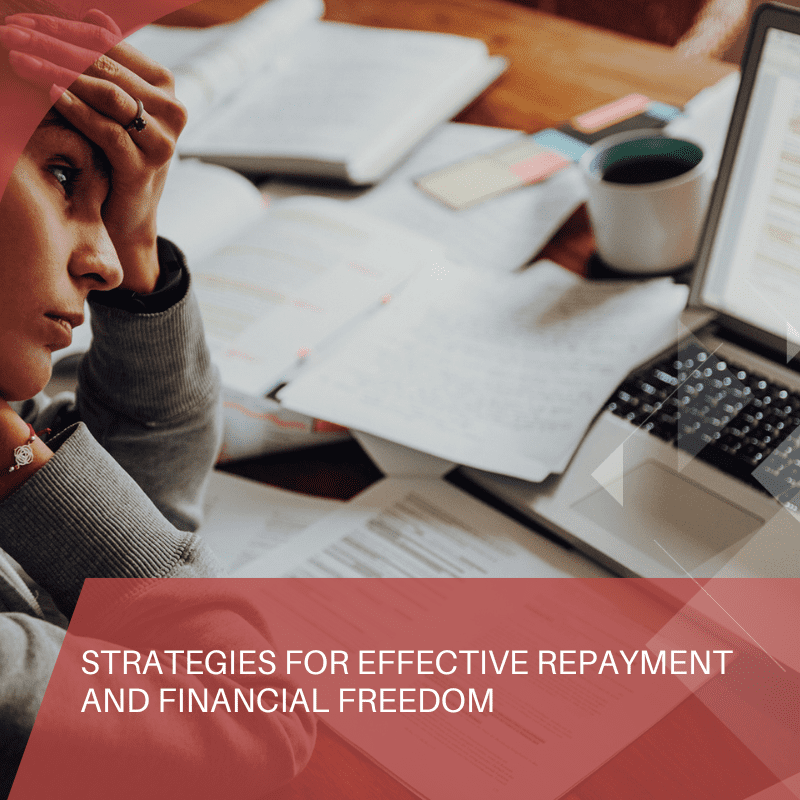The prevalence of student loans has made them a widespread financial burden for countless young adults pursuing higher education. While these loans serve as gateways to opportunities, they often bring about stress and anxiety due to their financial obligations. Luckily, there are numerous strategies available to minimize this stress and make the repayment process more manageable. In this article, we’ll delve into practical tips to assist students and graduates in navigating their loan repayment journey with greater ease.
Understanding Your Loans To reduce the stress associated with student loans, it’s crucial to have a comprehensive understanding of them. This involves knowing the types of loans you possess, their interest rates, and the terms and conditions attached. Federal and private loans may vary in repayment options and interest rates, necessitating a well-informed approach. Accessing this information through your loan servicer or the National Student Loan Data System (NSLDS) is vital.
Crafting a Budget Developing a budget stands as a fundamental step in managing student loan debts effectively. A well-structured budget assists in allocating your income wisely, ensuring that you have sufficient funds for loan payments while covering essential living expenses. Creating a detailed list of all income sources and expenses provides a clear financial snapshot.
Exploring Repayment Options Federal student loans offer diverse repayment options tailored to individual financial circumstances. These options often encompass income-driven repayment plans that limit your monthly payments to a percentage of your income. Exploring and selecting the most suitable plan for your situation can significantly alleviate the stress stemming from substantial, fixed monthly payments.
Prioritizing High-Interest Loans For those juggling multiple student loans, prioritizing repayment of those with the highest interest rates is a savvy strategy. This approach not only saves money in the long run but also diminishes the overall stress of debt. Paying off high-interest loans first liberates more of your income for other financial goals.
Setting Up Auto-Payments Implementing automatic payments with your loan servicer is a straightforward yet effective method to alleviate student loan stress. Auto-payments ensure that you never miss a payment, aiding in maintaining a positive credit history. Some lenders even offer interest rate reductions as incentives for borrowers who opt for auto-payments.
Establishing an Emergency Fund Maintaining an emergency fund serves as a safety net when unforeseen expenses arise. With a financial cushion in place, worrying about covering unexpected costs without derailing your loan repayment plan diminishes. Strive to save at least three to six months’ worth of living expenses.
Seeking Employment with Loan Forgiveness Programs Exploring employment opportunities in sectors offering loan forgiveness programs is worth considering. Certain government and nonprofit organizations provide opportunities for loan forgiveness after a designated period of service. This initiative can alleviate the stress of loan repayment by reducing or eliminating your debt.
Side Hustles and Additional Income To expedite the repayment process and alleviate student loan stress, exploring avenues to increase income is advisable. Engaging in side hustles, freelance work, or part-time jobs can generate extra funds to allocate towards loan payments. Every additional dollar counts and aids in accelerating debt repayment.
Avoiding Default Avoiding loan default is pivotal in managing student loan stress. Defaulting on loans carries severe consequences, such as damaged credit and wage garnishment. If making payments becomes challenging, reaching out to your loan servicer to explore alternative options like deferment or forbearance is crucial.
Financial Counseling Seeking financial counseling is a viable option if managing student loans becomes overwhelming. Nonprofit organizations and professionals specializing in debt management can provide guidance and devise personalized plans to alleviate financial stress.
Maintaining Positivity and Patience Lastly, maintaining a positive attitude and practicing patience are key in reducing student loan stress. Feeling overwhelmed is common, but it’s essential to remember that many individuals have successfully navigated the challenges of loan repayment. Stay dedicated to your financial goals, and gradual progress will be made over time.
In Conclusion Minimizing student loan stress is achievable through proactive debt management. Understanding your loans, crafting a budget, exploring repayment options, and seeking additional income avenues are effective strategies to regain control of your financial future. By making informed decisions and persevering, the stress associated with student loans can be reduced, paving the way towards a more secure financial future.
FAQs:
- What’s the initial step to minimize student loan stress? Understanding your loans, including type, interest rates, and terms, is the first step.
- How can I create a budget to manage student loan stress? Start by listing all income sources and expenses to effectively allocate funds for loan payments and essential living costs.
- Are there repayment options to reduce student loan stress? Yes, federal loans offer income-driven repayment plans that cap monthly payments at a percentage of your income, making them more manageable.
- What if I have multiple student loans? Prioritize paying off loans with the highest interest rates first to save money and reduce overall stress.
- How can I avoid default and its associated stress? Stay in touch with your loan servicer and explore alternative options like deferment or forbearance if struggling to make payments.

